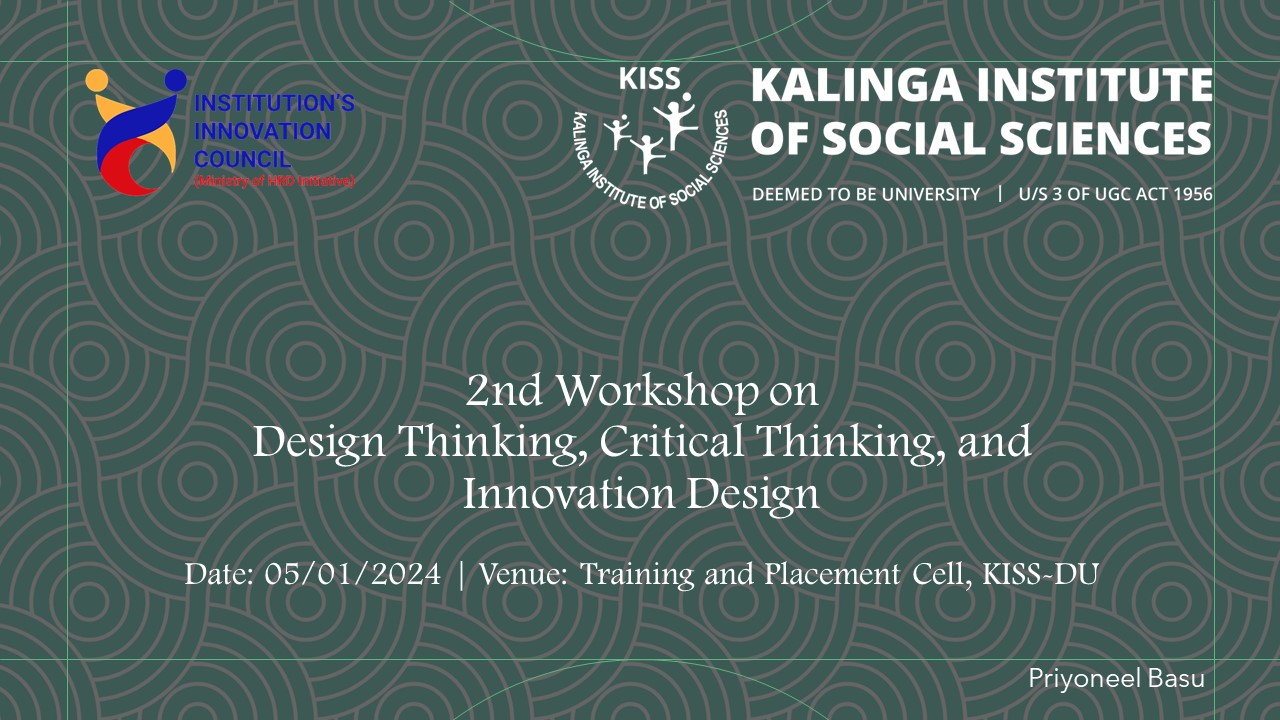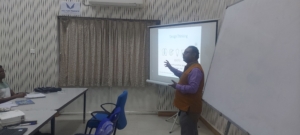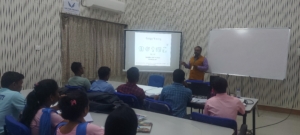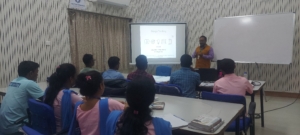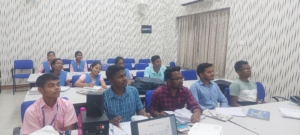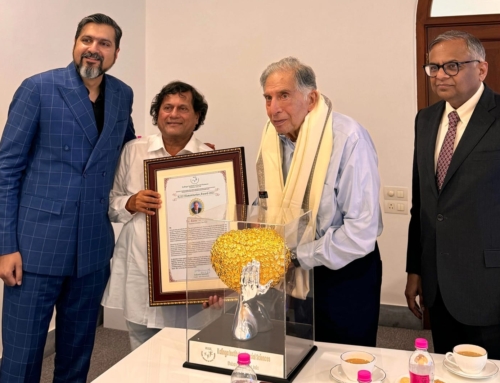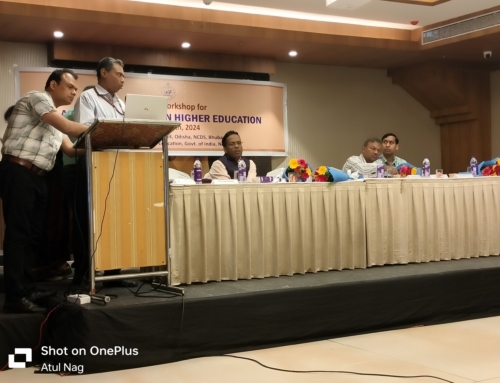On 5th January 2024, Dr. Priyoneel Basu, Director of the Research and Development Cell and Innovation Ambassador at Kalinga Institute of Social Sciences Deemed to be University, conducted an interactive workshop on Design Thinking, Critical Thinking, and Innovation Design. The workshop aimed to explore contemporary trends in these domains and highlighted the importance and use of empathy, definition, ideation, prototyping, and testing in the innovation process.
Dr. Basu elucidated the core principles of Design Thinking, laying emphasis on customer- and human-centricity in problem-solving. Participants gained insights into empathizing with end-users, identifying customer or stakeholder ouch-points, defining problems accurately, ideating innovative solutions, prototyping them, and testing for efficacy. Critical Thinking was also highlighted as an essential skill, enabling participants to analyze situations rigorously, identify biases, and make informed decisions, taking into consideration possible factors that may play a role in the execution of the idea. The session on Innovation Design stressed the integration of design principles and agile execution into the innovation process to create user-centric, attractive, and commercially viable solutions.
Dr. Basu provided a comprehensive overview of current trends shaping Design Thinking, Critical Thinking, and Innovation Design. Participants explored how these disciplines are increasingly recognized as crucial drivers of organizational success in today’s rapidly evolving landscape. From agile methodologies to cross-disciplinary collaboration, attendees gained valuable insights into practices reshaping industries worldwide.
The workshop fostered an interactive environment, encouraging active participation and collaboration among the attendees, who were underprivileged students from diverse Indigenous communities. The attendees were introduced to a sample problem and find feasible solutions through group discussions and mock pitches, with a view to extending the chosen solution to real-world scenarios, enhancing their understanding and practical skills in Design Thinking, Critical Thinking, and Innovation Design. The sample problem chosen was to create an innovative platform for preventing child marriage in remote communities.
Attendees left the workshop equipped with a deeper understanding of Design Thinking, Critical Thinking, and Innovation Design principles. They developed a holistic approach to problem-solving, emphasizing user empathy, agile execution, analytical rigor, and creative ideation. The workshop underscored the transformative potential of these techniques in driving and sustaining innovation and creating societal actors who could bring about transformative changes.

